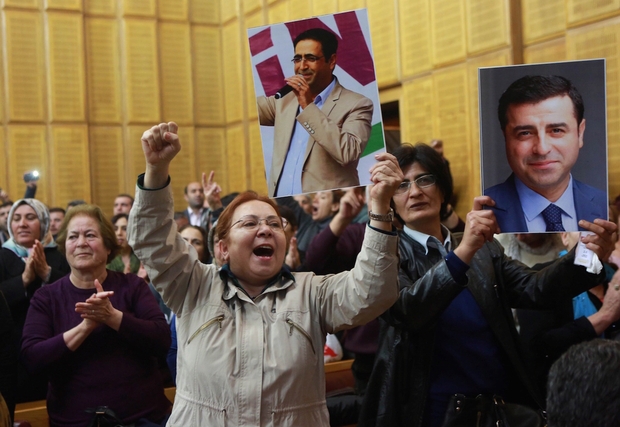Imprisoned Kurdish leader in Turkey calls off hunger strike

A jailed co-leader of Turkey's main pro-Kurdish political party called off his hunger strike protesting "inhumane" prison conditions after one day, as authorities agreed to talks.
Selahattin Demirtas began the hunger strike in prison in the northwestern province of Edirne, where he is currently awaiting trial on charges of maintaining links to the outlawed Kurdistan Workers Party (PKK).
"Whether ordinary or political, all arrestees and prisoners have the right to humane treatment in detention," Demirtas said in a statement on Friday.
"We want to draw attention to the unlawful, inhumane and arbitrary practices taking place in prisons in Turkey. It is because of these issues that there are a series of hunger strikes continuing for over 40 days in many prisons across Turkey." In his statement, Demirtas emphasised he had no "personal demands" from the hunger strike.
Several Kurdish convicts jailed in Edirne, as well as in Izmir, Ankara and Van, had already started hunger strikes to protest prison conditions.
They too decided to end their actions on Friday after the opening of a dialogue with the prison authorities and "promises" to improve conditions, according to a statement issued by the HDP on behalf of the "political prisoners".
Demirtas in a separate statement welcomed the end of the hunger strikes thanks to "mutual undertakings and good intentions".
No details have yet emerged from the start of the discussions.
The HDP is calling for a "no" vote in the 16 April referendum on approving constitutional changes that would create an executive presidency and abolish the post of prime minister.
The government says the changes would provide political stability by avoiding fragile coalition governments, but critics fear it will lead to one-man rule.
The arrests have added to European fears that Erdogan is seeking to silence opposition voices.
Middle East Eye propose une couverture et une analyse indépendantes et incomparables du Moyen-Orient, de l’Afrique du Nord et d’autres régions du monde. Pour en savoir plus sur la reprise de ce contenu et les frais qui s’appliquent, veuillez remplir ce formulaire [en anglais]. Pour en savoir plus sur MEE, cliquez ici [en anglais].




